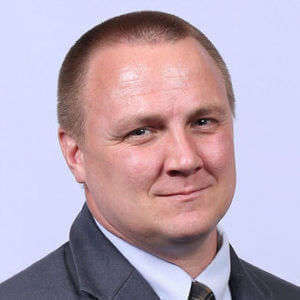Faculty Luncheon: "Digital Glass Forming" by Edward C. Kinzel

ND Energy Faculty Luncheon Seminars are held monthly with interested faculty to facilitate cross-disciplinary research collaborations and to enable development of proposal ideas for upcoming funding opportunities. All interested faculty from diverse fields are invited to attend.
The discussion topic for this luncheon will be centered around a presentation by Prof. Edward C. Kinzel, associate professor in the Department of Aerospace and Mechanical Engineering, titled "Digital Glass Forming."
This 35-40 minute talk will be followed by discussion with Prof. Kinzel focused on (1) cross-disciplinary basic research needs, (2) potential avenues for external and internal collaborations, (3) funding sources to target, and if everyone is agreeable, (4) 'follow-up actions' that we can track. With all the faculty engaging in the discussion part of this luncheon after the talk, we expect to have a very stimulating and inspiring exchange of ideas.
For more information on the ND Energy Faculty Luncheon Seminars, contact Subhash L. Shinde at sshinde@nd.edu.
Abstract
Silicate glasses have unique properties including high transparency, low-temperature sensitivity, and high chemical/electrical resistance. Additive manufacturing provides the potential to create parts with complicated geometries over low production volumes as well as opening new possibilities for diverse applications ranging from optics to integrated lab-on-a-chip devices. This presentation describes ongoing work printing optically transparent glass using a new laser-heated, filament-fed process. A CO2 laser locally melts continuously fed, small-diameter glass rods, tubes, or optical fiber. 3D shapes are constructed by moving a 4-axis CNC stage relative to the intersection of the filament and laser beam. The molten glass is controllably deformed by loading from the substrate and filament as well as surface tension. This allows the deposition of fully dense smooth geometries as well as free-standing structures. It also has potential energy savings relative to conventional torch working. The physics of the process will be discussed along with the presentation of low-order scaling models predicting the performance.
Biography
Prof. Kinzel’s research interests are centered on laser/material interaction with a focus on manufacturing/fabrication as well as sensing and energy harvesting. Projects in his research group include: additive manufacturing of glass for optics/photonics, scalable fabrication of metasurfaces/IR antennas for the control of thermal radiation, design of metasurface enabled uncooled IR microbolometers, and implementing spectrometry/radiometry for microstructure control in metal selective laser melting.